Regular Expressions, also known as RegEx, are a powerful tool for recognizing and working with specific patterns in texts. They are excellent for searching, filtering, and manipulating data. With the functions re.findall and re.split from the Python module re, you can efficiently handle these patterns. In this guide, you will learn how to perform complex text analyses and how these functions can help you enhance your programming skills.
Key Insights
You will learn how to use re.findall to search for all occurrences of a term in a text and how to use re.split to split texts at specific patterns. Additionally, you will receive important tips on how to apply these functions to different text formats.
Step-by-Step Guide
1. Introduction to re.findall
In the first step, we will look at the function re.findall, which allows you to find all occurrences of a specific term in a text. First, you need to import the module re.
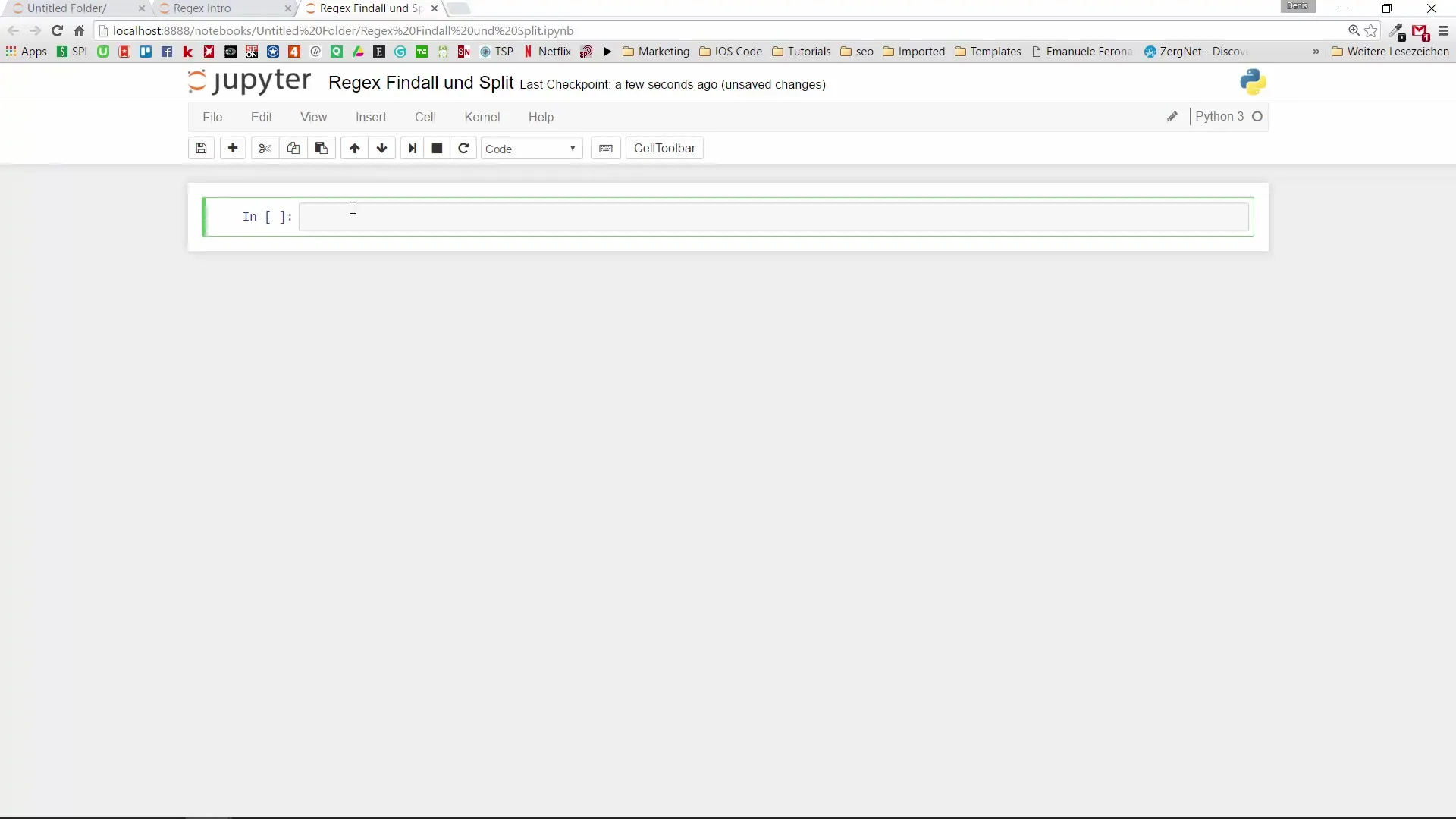
After that, you can use the findall function to specifically search for a term. If there are multiple occurrences of this term in the text, you will receive a list of all occurrences.
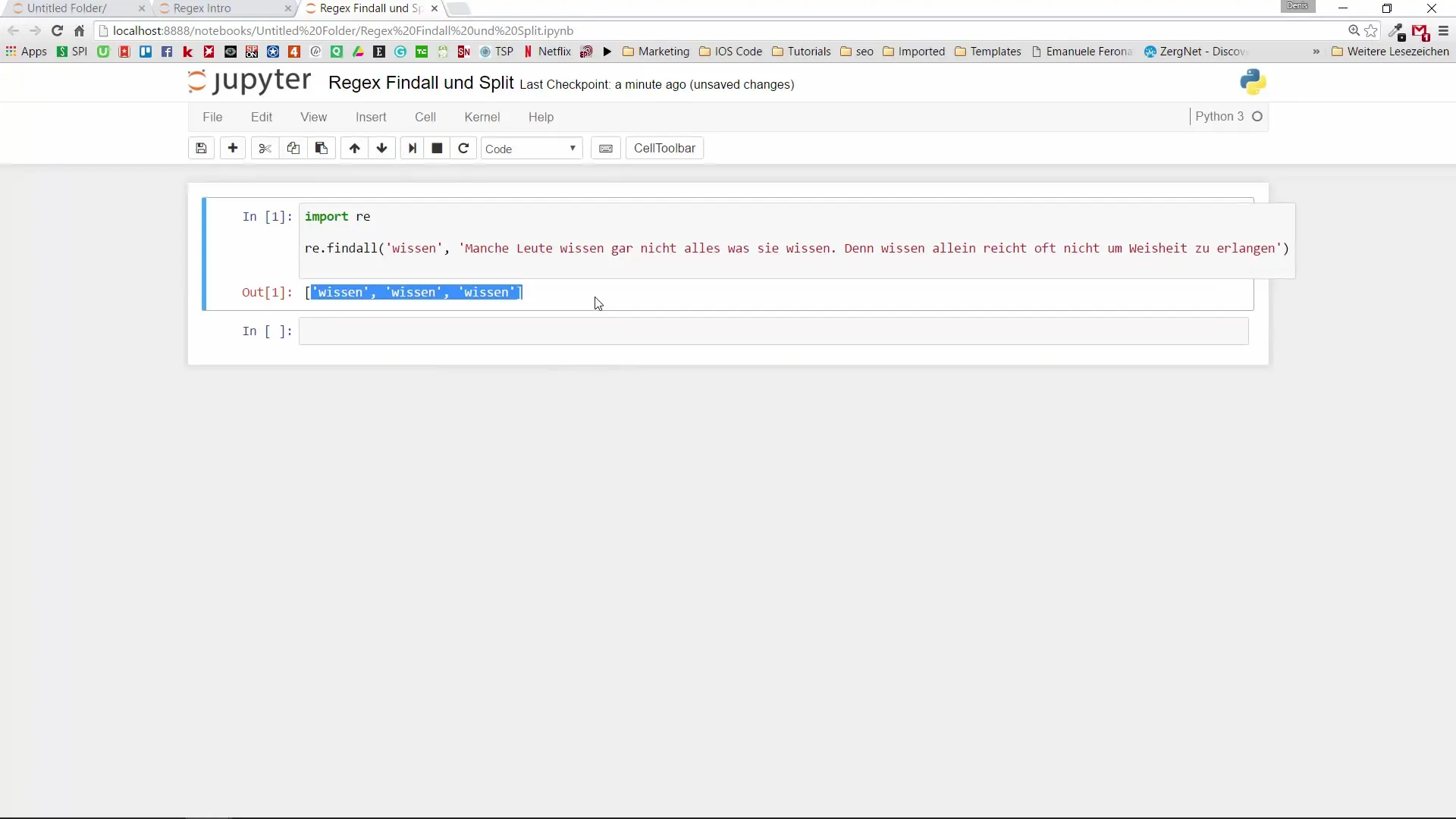
With this foundation, you can also search text files for specific words. Using re.findall will help you determine the frequency of a specific term.
2. Analyzing Term Frequency
If you are working with larger text volumes, such as books or extensive documents, it is sensible to use this function to find out how often a term appears. You can store the result in a list and output its length.
This is particularly useful if you want to know how important a specific term is in your text. Depending on the context, this can provide crucial information.
3. Using re.split to Split Texts
Another important tool is the function re.split. This allows you to divide a text at a specific delimiter. To illustrate this, you define a delimiter, such as a comma.
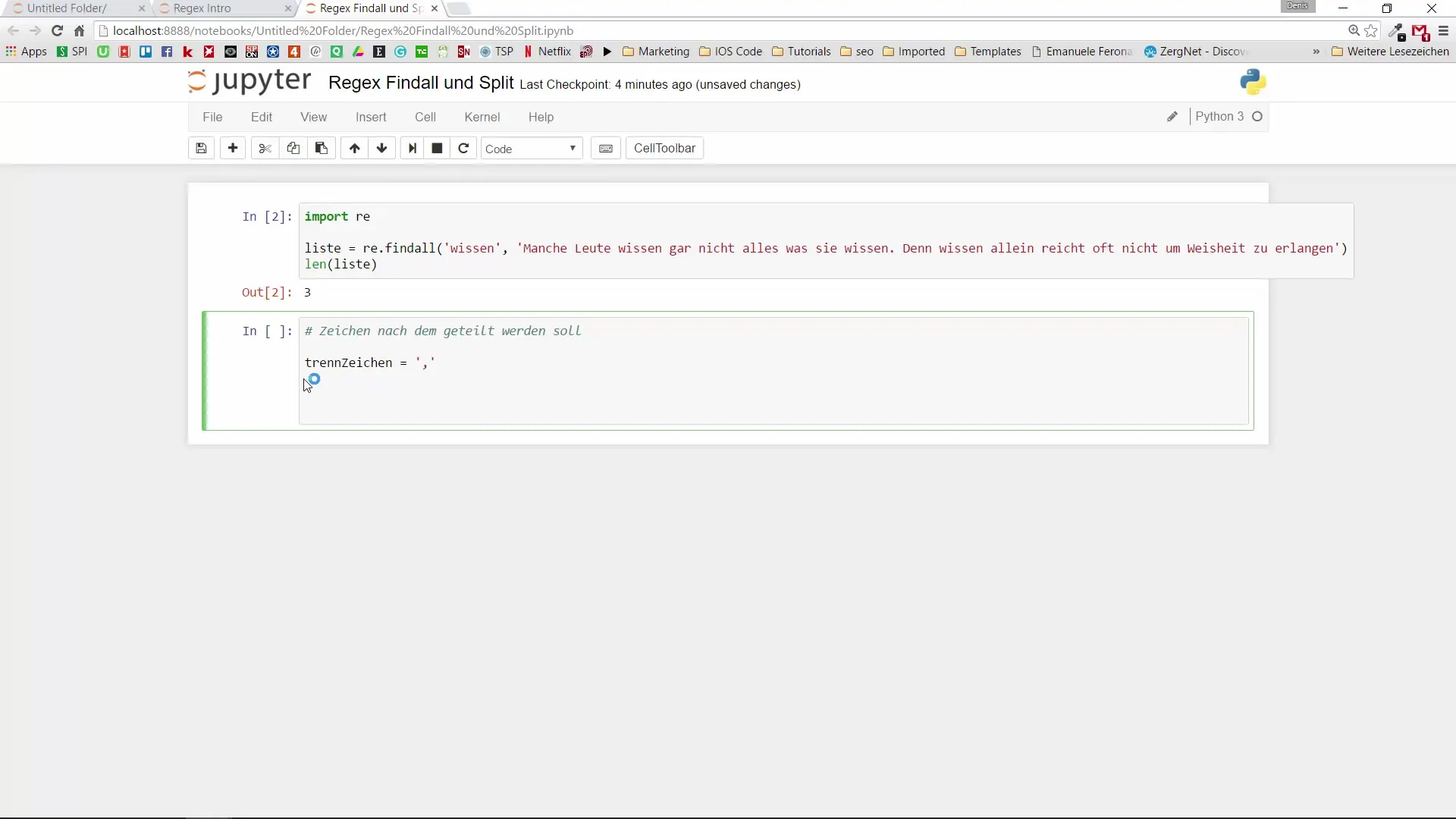
You can then define a text in which these delimiters occur, and by calling the re.split function, you will receive the parts of the text in a list.
This can be extremely useful, especially in data analysis or when processing CSV files. This way, you can quickly access structured data.
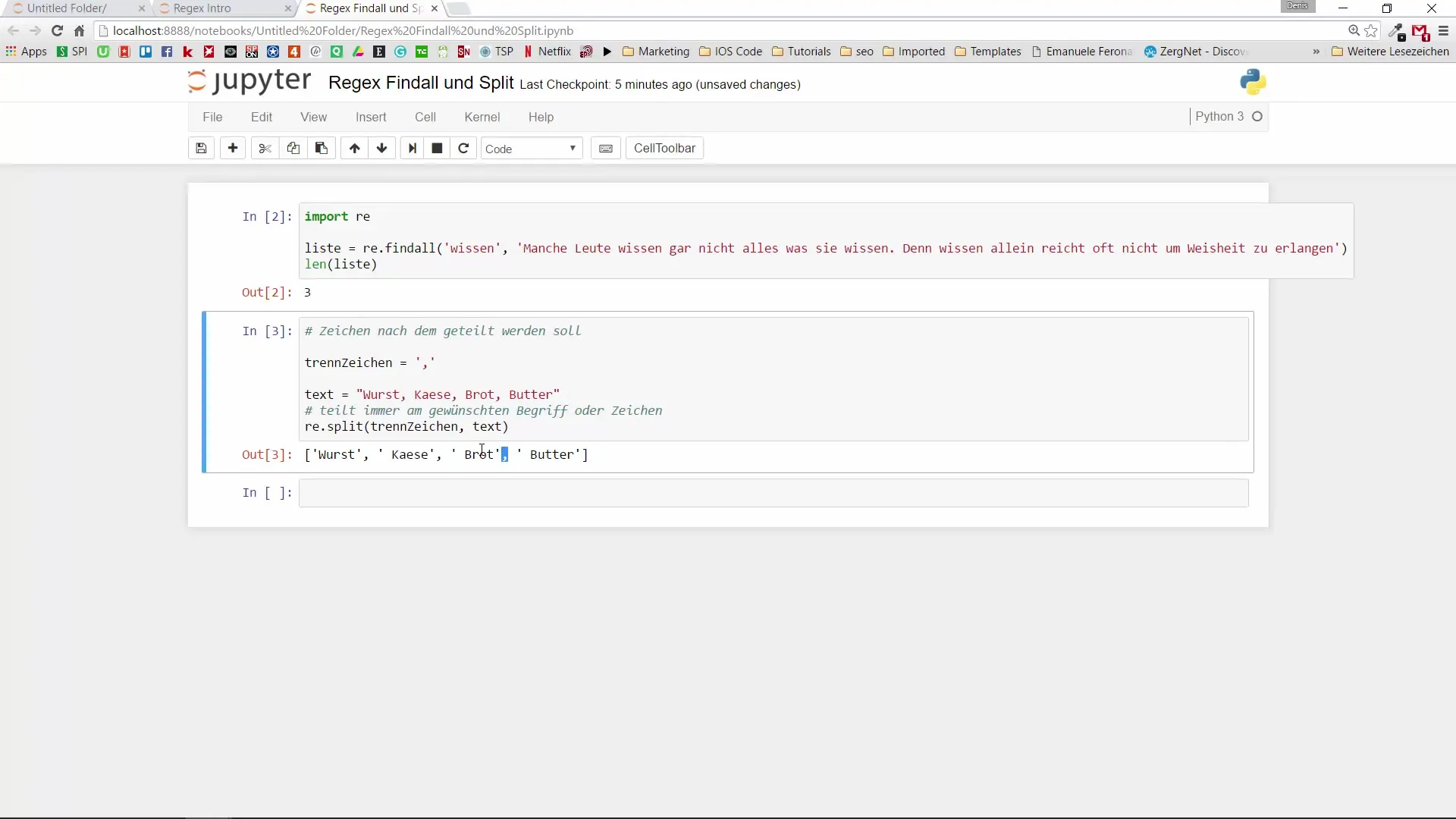
4. Application to Web Content
RegEx is frequently used to extract content from websites. Whether you want to filter out specific texts or links, it is important to understand the structure of the HTML code.
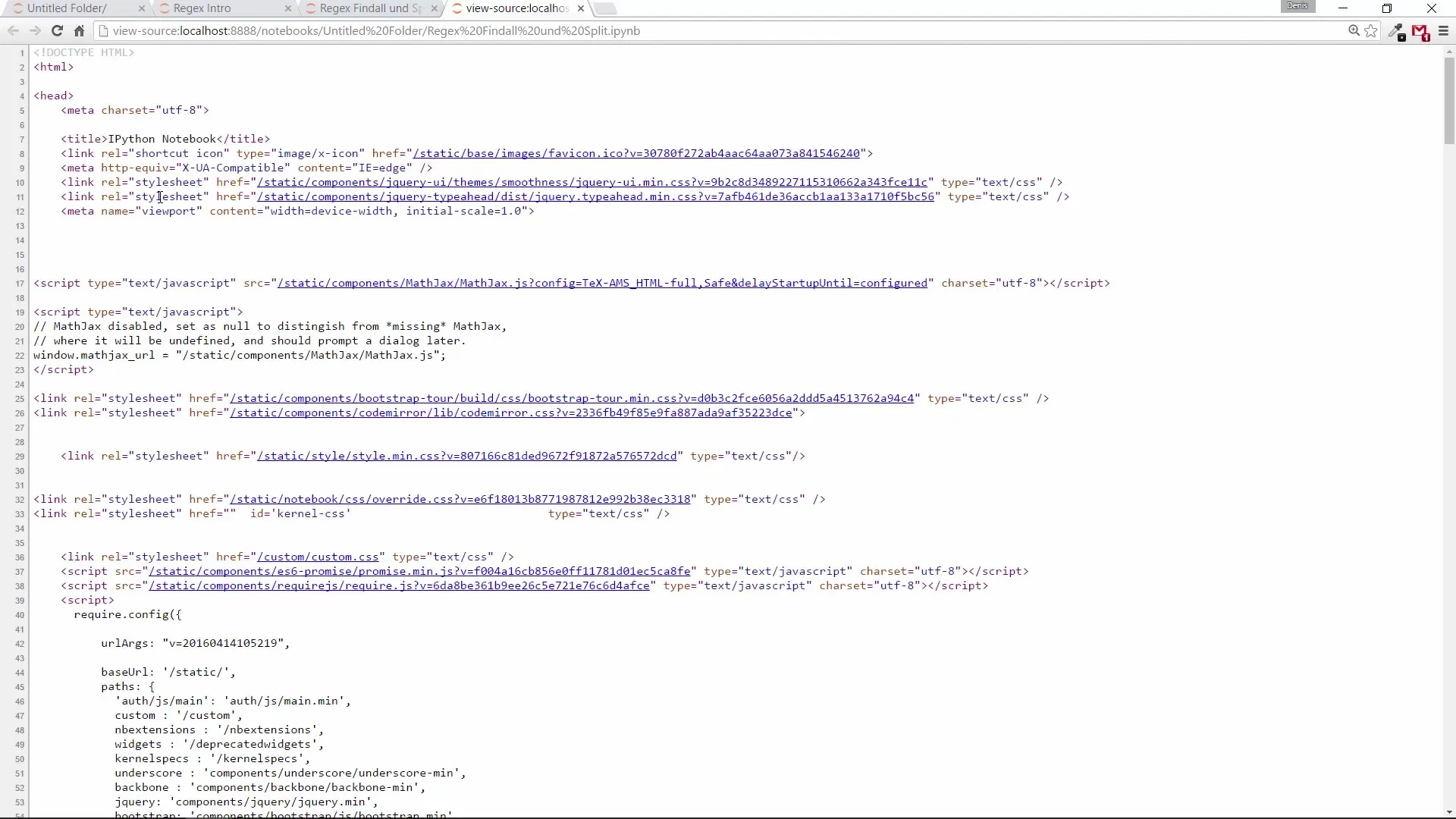
By using re.split in combination with the right pattern, you can extract specific elements like images or links, which is significant for web scraping applications.
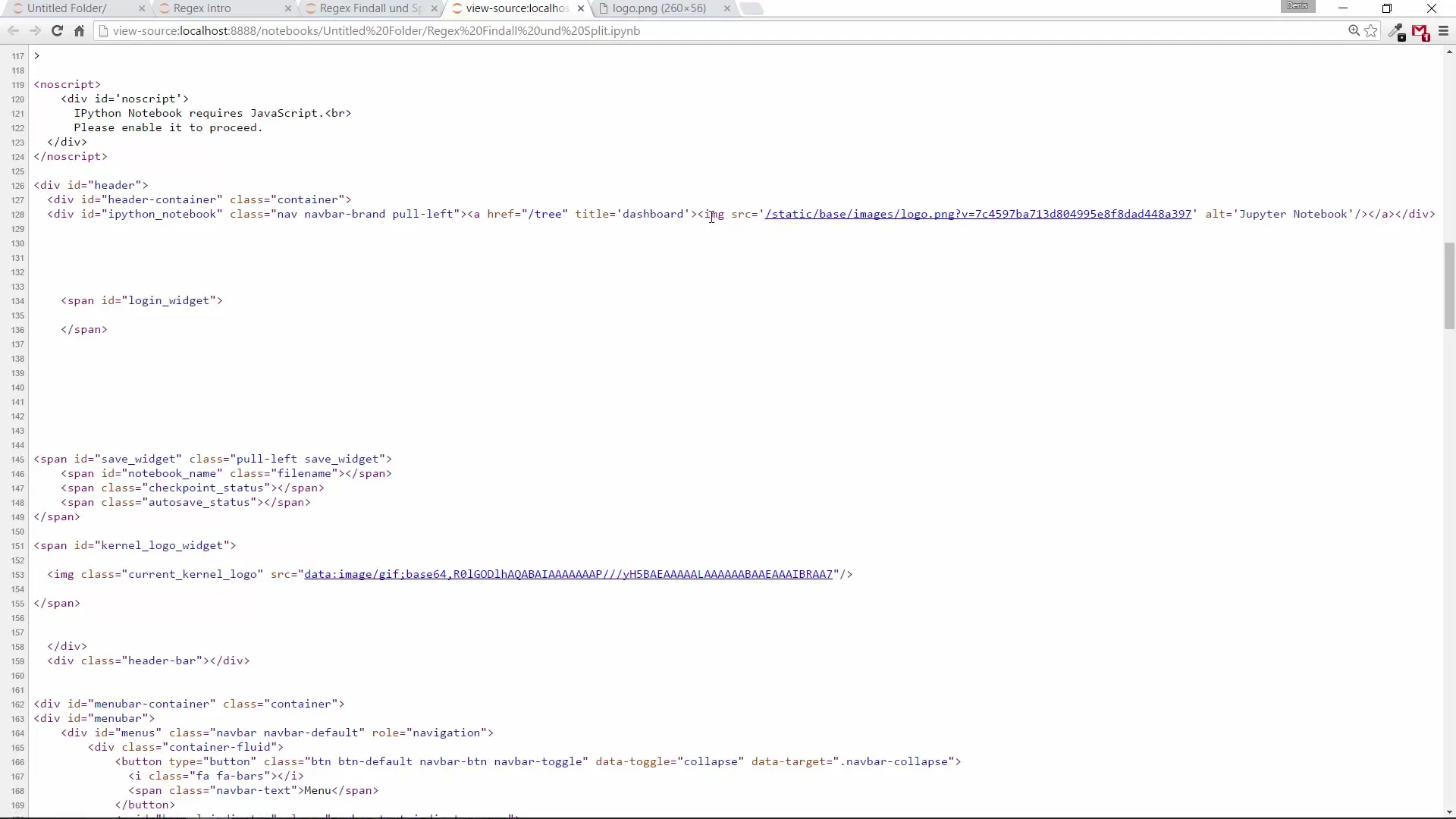
5. Filtering Special Characters
Often, you want to ignore certain characters in a text. In this case, you can use RegEx to filter out all special characters. To do this, you need to define the pattern accordingly to exclude unwanted characters.
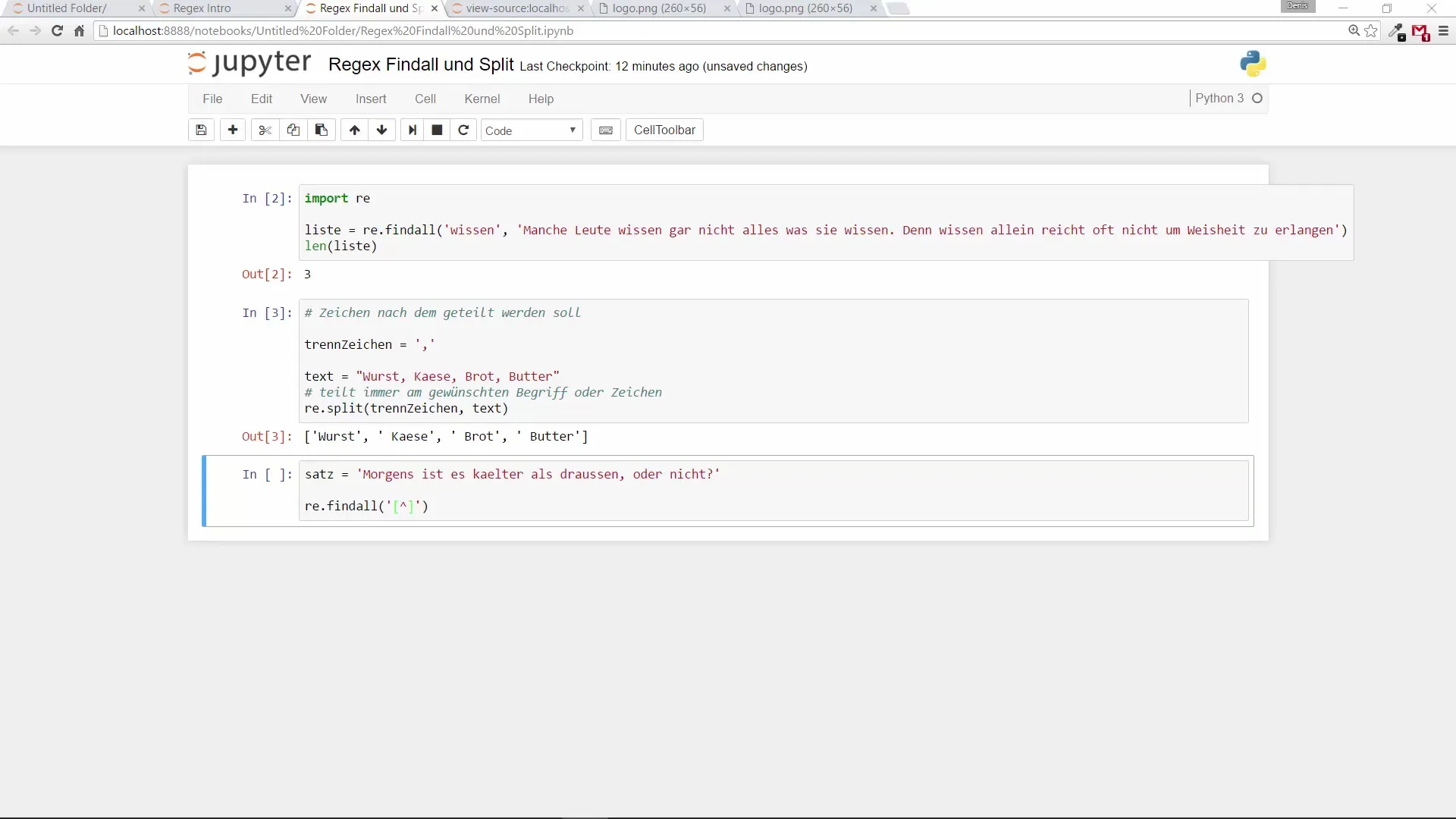
With a clever application of the re.findall function, you can avoid a tangle of special characters and gain a clear overview of the relevant terms.
Summary – Using re.findall and split in Python
In this guide, you have learned important techniques for using Regular Expressions in Python. You now know how to use the function re.findall to determine occurrences of terms and how to use re.split to efficiently separate texts.
Frequently Asked Questions
What are Regular Expressions (RegEx)?RegEx are specialized patterns used for searching and manipulating text.
How can I work with re.findall?With re.findall, you can capture all occurrences of a specific pattern in a text and return them as a list.
What does the function re.split do?re.split splits a text at specific delimiters and returns the individual parts as a list.
How can I filter out special characters from a text?Use a combination of RegEx with the findall function to remove unwanted characters from your text.


